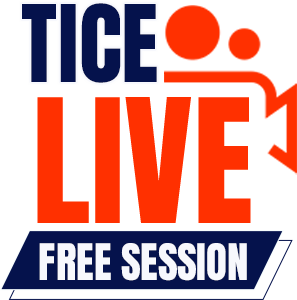
Posted On: January 11, 2025
Career Switching in 2025: How Institutions Can Help You Start Fresh
So you've decided to switch careers but are not sure how to go about it. Your decision could be based on a change in your interests or simply because you want to earn more. Whatever the reason may be, a career switch doesn't necessarily have to be daunting. Enrolling yourself in an institution should be your first step.
A new career path demands careful planning, skill acquisition, and guidance. Educational institutions play a pivotal role in facilitating these transitions by offering industry-ready courses, certification training programs, and comprehensive career development support.
The Rise of Career Switching
The trend of career switching is no longer seen as an exception but a strategic move for many professionals. In 2025, several factors are driving individuals to change careers, ranging from technological advancements to evolving personal priorities. Let’s explore these reasons in detail.
1. Technological Changes
The rapid advancement of technologies like automation, artificial intelligence (AI), and machine learning has significantly reshaped job markets. Traditional roles are being automated, and entirely new job categories are emerging.
For instance, jobs in manufacturing, customer service, and logistics are increasingly automated, while roles in data analysis, cybersecurity, and AI development are in high demand. Employees working in industries impacted by automation must acquire new skills to remain employable.
Institutions are addressing this shift by offering industry-ready courses and certification training programs in areas such as AI, cloud computing, and digital marketing.
2. Job Dissatisfaction
Many professionals find themselves stuck in roles that no longer align with their values or interests. Job dissatisfaction often stems from repetitive tasks, lack of growth opportunities, poor work environments, or unfulfilling responsibilities.
In such cases, individuals seek careers that offer more meaningful work, better job opportunities, and long-term growth prospects. Career development programs, online courses, and certification courses help bridge the gap by equipping professionals with skills for jobs that better match their passions and interests.
3. Economic Shifts
Global economic changes, such as recessions, geopolitical events, and industry-specific downturns, can render some sectors less viable. For example, the COVID-19 pandemic drastically impacted industries like tourism, retail, and hospitality, forcing many workers to explore alternative career paths.
As industries evolve, workers must adapt by acquiring relevant skills to remain employable. Institutions offering career transition programs help individuals shift into stable and growing sectors such as healthcare, technology, and e-commerce.
4. Pursuit of Work-Life Balance
The pursuit of work-life balance has become a key priority for professionals in 2025. Many individuals are seeking flexible work arrangements that allow them to manage both personal and professional responsibilities. Traditional 9-to-5 jobs with rigid schedules are becoming less appealing. Instead, careers in remote work, freelancing, and gig economy jobs are gaining popularity. These roles often offer more autonomy, reduced commuting time, and better overall well-being.
Educational institutions are recognizing this shift and offering online courses and certification training programs that cater to remote work demands. Professionals can now upskill from the comfort of their homes and transition into careers that offer better work-life balance.
In conclusion, career switching is being driven by technological changes, job dissatisfaction, economic shifts, and the pursuit of work-life balance. Institutions offering industry-ready courses, certification programs, and career development resources are playing a critical role in helping individuals adapt to these changes and achieve successful career transitions.
Identifying Transferable Skills
These would be the knowledge and skills used across different areas, making them transferable when switching careers. The following represent some of the most important ones:
- Communication: You will understand that effective written and verbal communication are essential parts of any working life, be it in telling an idea effectively or working through teams.
- Problem-Solving: An employer's best asset remains anyone with a mind that can analyze challenges, think profoundly, and have a practical means of solving that problem.
- Leadership: Leading teams and managing projects in addition to decisions are important capabilities, especially those that require someone to take the initiative.
- Adaptability: The ability to work with change; adapt to changing environments; and adapt to new process learning is now indispensable in a fast-evolving job market.
Such skills make it easy to shift between roles and industries. Using already existing strengths, certification courses, and online learning programs for building, you position yourself better toward success in a new career.
Role of Educational Institutions
Educational institutions are of utmost importance to people making a career change, as they offer them courses, resources, and counseling according to the changing nature of jobs. Such institutions prepare the career changer by offering industry-ready courses, certification training programs, online learning, and personal career counseling services. Here is how they assist individuals in their transition process:
1. Industry-Ready Courses
Some of the most important ways educational institutions assist career switchers are through the offering of courses relevant to industries in line with the demands of the market. The courses are therefore structured to ensure learners gain skills in new areas that are fast becoming popular in industries. Courses such as digital marketing, data analysis, cybersecurity, and software development are among the high-demand courses.
Through such courses, an individual can bridge the gap between their existing skills and the requirements of the desired job roles. The institutions make sure that such courses are updated from time to time so that learners remain abreast of the latest technological advancements and industry trends and hence become job-ready upon completion.
2. Certification Training Programs
Certification programs are yet another significant offer from education providers. It ensures that the professional has the expertise in a given field and thereby increases the level of authenticity within the employment sectors. Certification certifies the existence of necessary knowledge and skills required for an applicant to perform the role.
Some popular certifications include:
- Project Management Professional (PMP) certification is for project managers
- Certified Data Analyst (CDA) is for data professionals
- Certified Digital Marketing Professional (CDMP) is for marketing professionals
These certifications are international and are generally preferred by employers. In many cases, certifications can be a competitive edge for candidates when entering technical or specialized positions.
3. Online Courses
The advent of online learning has dramatically changed the way people can acquire new skills. Online courses are convenient and allow professionals to upskill while still working. This is particularly useful for those who have work and personal commitments to balance.
Coursera, edX, Udemy, and LinkedIn Learning have a wide array of courses offered in various fields. These learning platforms collaborate with leading institutions to provide accessible, quality education at affordable prices. Courses range from short-term skill-based modules to certification programs, providing learners with an option to choose based on their professional needs.
In addition, online courses allow learners to keep abreast of the latest industry practices and adjust to changing job market requirements without attending traditional classroom-based programs.
4. Career Counseling Services
Institutional educational facilities also offer individualized career counseling services to guide individuals through their career transitions. These services help candidates understand their strengths, identify suitable career paths, and create a structured transition plan.
Career counselors assist with:
- Resume building: Preparing customized resumes emphasizing their transferable skills
- Interview preparation: Providing mock interviews and tips on improving their performance
- Job search strategies: How to approach the job market, use professional networks, as well as some methods using LinkedIn.
In general, one-on-one mentorship is often offered as part of career counseling services, where career switchers have a clearer view of what the employers in their target field look for. Such customized guidance enables individuals to feel more confident and ready as they approach new opportunities.
Steps to a Successful Career Transition
- Self-Assessment: Evaluate your interests, strengths, and values to identify suitable career options.
- Research: Find the relevant industries and job titles to learn about the necessary qualifications and market demand.
- Skill Acquisition: Join courses and get relevant certifications to build necessary competencies.
- Practical Experience: Look for internships, volunteer work, or part-time jobs to gain hands-on experience.
- Professional Branding: Update your resume, LinkedIn profile, and portfolio to reflect your new career focus.
- Job Search Strategy: Use job boards, networking events, and recruitment agencies to find opportunities.
FAQs Regarding Career Changing
Q1: Is 2025 late for a career change?
ANS: Not at all. Considering the vast amounts of online courses that have been launched, it can be changed at any time.
Q2: How can I finance my career shift?
ANS: Many places provide financial assistance, scholarships, or payment arrangements for their course offerings. Employers also allow some professional development funds.
Q3: Have I got to take an entry-level position in a new profession?
ANS: Not necessarily. Transferable skills and appropriate experience can move you into the mid-level ranges especially if you receive industry-based certification.
Q4: How long does it typically take to transition a career?
ANS: That depends. More complex career areas may be a longer stretch to get used to. With some dedication time, it could easily be six months to two years on average.
Q5 Can career counseling really make a difference?
ANS: Yes, career counselors provide personalized advice, resources, and support that can streamline your transition and enhance your job search effectiveness.
Conclusion
As a result, by 2025, career change will become a very realistic and very sought-after pursuit and is supported by educational institutions, which have begun to tailor programs to the ever-changing nature of the workforce. Industry-ready courses, certification training programs, and comprehensive career development services all support a smooth entry into new professional landscapes. At TICE, such institutions are always at the helm of this change, equipping you with all the tools and guidance needed to start anew and realize your dreams.
Tags
Latest Posts
-

A Step-by-Step Guide to Becoming a Social Media Manager in 2025
-

ROAS in Digital Marketing — What Is It and Why It Matters for Your Business?
-

Why Networking is Important for Students: Unlocking Opportunities for Internships and Jobs
-

What is Lead Generation? A Complete Guide for Marketers
-

Psychology of Colors in Branding – Choosing the Right Palette






